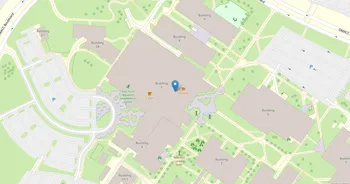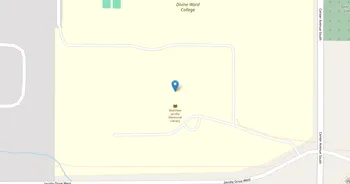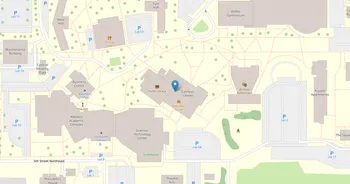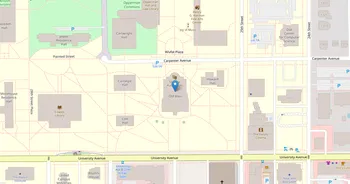Cornell College : Overview, Courses, Scholarships & Rankings
About Cornell College
At Cornell College, students tackle a one-course-at-a-time schedule, so classes feel focused, hands-on, and collaborative. The hilltop campus blends historic brick with studios, labs, rehearsal spaces, and a well stocked library. Academic strengths span the sciences, arts, and humanities, with a reputation for close faculty mentorship and field learning. Support is practical: personal advising, tutoring and writing help, wellness care, and a career center that starts early.
Student life is active and welcoming. You'll find music and theater, cultural orgs, outdoor clubs, intramurals, and trails when you need a breather. The culture is curious and unpretentious; people show up for each other. Career prep runs through internships, research tied to the block, and alumni connections across the Midwest. Mount Vernon's main street sits below campus, and nearby cities add employers, arts, and civic work. Traditions gather on the commons and under the chapel steps.
Key Institutional Details
Contact & Profile
Academic & Institutional
Academic Programs & Fields of Study
Cornell College offers 49 degree programs across 18 major academic fields, graduating approximately 253 students annually. The most popular fields by graduate volume are Biological Sciences (3 programs, 33 graduates), Business (5 programs, 31 graduates), Psychology (3 programs, 25 graduates), Kinesiology (3 programs, 22 graduates) and Social Sciences (5 programs, 21 graduates). Explore program details, award levels, and graduate demographics below.
Biological Sciences (3 programs, 33 graduates)
Life Sciences, Biotechnology and Biomedical Research
| Program Name | Graduates | Gender Distribution | Award Levels | CIP Code |
|---|---|---|---|---|
| Biochemistry and Molecular Biology | 27 |
|
Bachelor's
|
26.0210 |
| Biology and Biological Sciences | 3 |
|
Bachelor's
|
26.0101 |
| Ecology and Evolutionary Biology | 3 |
|
Bachelor's
|
26.1310 |
Business (5 programs, 31 graduates)
Business Administration, Marketing and Entrepreneurship
| Program Name | Graduates | Gender Distribution | Award Levels | CIP Code |
|---|---|---|---|---|
| Finance, General | 12 |
|
Bachelor's
|
52.0801 |
| Management Sciences and Quantitative Methods | 11 |
|
Bachelor's
|
52.1399 |
| Business Economics | 6 |
|
Bachelor's
|
52.0601 |
| Human Resources Management | 1 |
|
Bachelor's
|
52.1001 |
| Management Science | 1 |
|
Bachelor's
|
52.1301 |
Psychology (3 programs, 25 graduates)
Psychological Sciences, Mental Health and Behavioral Studies
| Program Name | Graduates | Gender Distribution | Award Levels | CIP Code |
|---|---|---|---|---|
| General Psychology | 15 |
|
Bachelor's
|
42.0101 |
| Behavioral Neuroscience | 8 |
|
Bachelor's
|
42.2706 |
| Applied Psychology | 2 |
|
Bachelor's
|
42.2813 |
Kinesiology (3 programs, 22 graduates)
Exercise Science, Sports Medicine and Physical Recreation
| Program Name | Graduates | Gender Distribution | Award Levels | CIP Code |
|---|---|---|---|---|
| Exercise Science and Kinesiology | 17 |
|
Bachelor's
|
31.0505 |
| Sports, Kinesiology, and Physical Education | 4 |
|
Bachelor's
|
31.0501 |
| Physical Fitness Technician | 1 |
|
Bachelor's
|
31.0507 |
Social Sciences (5 programs, 21 graduates)
Sociology, Anthropology and Political Science Studies
| Program Name | Graduates | Gender Distribution | Award Levels | CIP Code |
|---|---|---|---|---|
| International Relations | 7 |
|
Bachelor's
|
45.0901 |
| Political Science and Government | 6 |
|
Bachelor's
|
45.1001 |
| Sociology | 4 |
|
Bachelor's
|
45.1101 |
| Anthropology | 3 |
|
Bachelor's
|
45.0299 |
| Sociology and Anthropology | 1 |
|
Bachelor's
|
45.1301 |
Education (4 programs, 20 graduates)
Educational Sciences, Teaching Methods and Pedagogy
| Program Name | Graduates | Gender Distribution | Award Levels | CIP Code |
|---|---|---|---|---|
| Elementary Education | 8 |
|
Bachelor's
|
13.1202 |
| Multiple Level Teacher Education | 7 |
|
Certificate (1-2 yrs)
|
13.1206 |
| Secondary Education and Teaching | 3 |
|
Certificate (1-2 yrs)
|
13.1205 |
| Music Teacher Education | 2 |
|
Bachelor's
|
13.1312 |
English (2 programs, 16 graduates)
English Literature, Creative Writing and Literary Analysis
| Program Name | Graduates | Gender Distribution | Award Levels | CIP Code |
|---|---|---|---|---|
| Creative Writing | 12 |
|
Bachelor's
Master's
|
23.1302 |
| Literature | 4 |
|
Bachelor's
|
23.1401 |
Arts (5 programs, 15 graduates)
Fine Arts, Design Studies and Creative Performance
| Program Name | Graduates | Gender Distribution | Award Levels | CIP Code |
|---|---|---|---|---|
| Art History and Conservation | 6 |
|
Bachelor's
|
50.0703 |
| Art Studies | 4 |
|
Bachelor's
|
50.0701 |
| Theatre Arts | 3 |
|
Bachelor's
|
50.0501 |
| Musical Theatre | 1 |
|
Bachelor's
|
50.0509 |
| Music History, Literature, and Theory | 1 |
|
Bachelor's
|
50.0902 |
Computer & IT (1 programs, 11 graduates)
Computer Science, Information Technology and Cybersecurity
| Program Name | Graduates | Gender Distribution | Award Levels | CIP Code |
|---|---|---|---|---|
| Computer Science | 11 |
|
Bachelor's
|
11.0701 |
Engineering (2 programs, 11 graduates)
Engineering Sciences and Applied Technology Solutions
| Program Name | Graduates | Gender Distribution | Award Levels | CIP Code |
|---|---|---|---|---|
| General Engineering | 10 |
|
Bachelor's
|
14.0101 |
| Engineering Science | 1 |
|
Bachelor's
|
14.1301 |
Admission Requirements & Test Scores
Comprehensive overview of admission criteria, standardized test score ranges, and application requirements for prospective students at Cornell College.
Application Requirements
Data based on IPEDS for 2022-2023 academic year. Test score ranges represent the middle 50% of admitted students (25th-75th percentile). Requirements may vary by program.
Tuition, Fees & Estimated Costs
Overview of tuition rates, housing, and other annual education expenses for undergraduate and graduate students
Financial Aid & Student Support
Summary of scholarships, grants, student loans, and financial aid statistics for undergraduate students
Student Success Metrics
Graduation rates and post-graduation earnings to help assess student outcomes and long-term value of education.
Loan Burden & Repayment Outcomes
Breakdown of loan repayment rates and student debt levels by income and dependency status.
Frequently Asked Questions
Find answers to the most common questions about Cornell College
How much does it cost to attend Cornell College?
The annual tuition at Cornell College is $50,634 for in-state students. When including room and board, books, and other expenses, the total estimated cost is approximately $66,352 for in-state students. Additional costs include room and board $11,358 and books and supplies $1,200.
Data based on IPEDS program completions for 2022-2023 academic year. Tuition and cost estimates are approximate and may not include all fees, personal expenses, or transportation costs.
What academic programs and degree levels does Cornell College offer?
Cornell College offers 49 academic programs across 18 major fields of study, with available degree levels: Bachelor's, Master's.
Most popular program areas include:
- Life Sciences, Biotechnology and Biomedical Research (3 programs)
- Business Administration, Marketing and Entrepreneurship (5 programs)
- Psychological Sciences, Mental Health and Behavioral Studies (3 programs)
- Exercise Science, Sports Medicine and Physical Recreation (3 programs)
- Sociology, Anthropology and Political Science Studies (5 programs)
Data based on IPEDS program completions for 2023-2024 academic year. Numbers reflect programs where students graduated, not all offered programs.
What is the acceptance rate for Cornell College?
Cornell College has an 80.7% acceptance rate and a 12% yield rate, making it moderately selective.
Admission statistics breakdown:
- Total applicants: 3,087
- Students admitted: 2,490
- Students enrolled: 298
Data based on IPEDS for 2022-2023 academic year. Admission statistics may vary by program and application cycle.
What financial aid and scholarships are available at Cornell College?
Cornell College provides financial aid to 31% of first-time, full-time students, with average grants of $38,486 and average loans of $9,817.
Average financial aid amounts by type:
- Pell grants: $4,805
- State/Local grants: $7,931
- Institutional grants: $35,628
- Federal loans: $5,651
The university supports 329 students with grants and 225 students with loans annually.
Data based on IPEDS for 2022-2023 academic year. Financial aid amounts and percentages may vary by program, enrollment status, and individual circumstances.
What is the average salary for Cornell College graduates?
Cornell College graduates earn a median salary of $39,299 after 6 years and $53,460 after 10 years.
The salary range 10 years after graduation spans from $36,797 (25th percentile) to $75,013 (75th percentile), with top earners reaching $77,200 (90th percentile).
Data based on IPEDS for 2022-2023 academic year. Salary data reflects graduates who received federal financial aid (approximately 60% of all graduates). Actual earnings may vary significantly based on program, location, and individual circumstances.
Related Universities




Found something useful? Help others discover it too! Share with friends, on social media, or save for later - every share helps someone find the information they need.